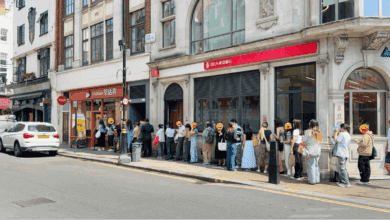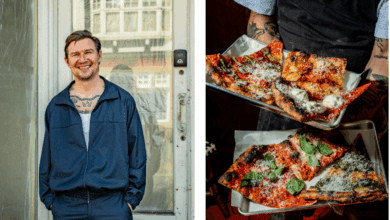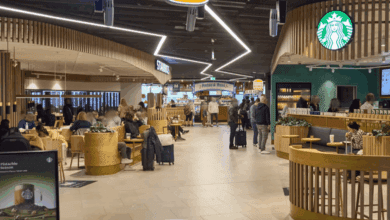Could sourcing ethical meat make restaurants more sustainable?
August 24 marked National Burger Day in the UK to celebrate one of the most popular dishes within the hospitality industry. Luke Jenkins, head of commercial at London’s Mercato Metropolitano, tells us why food operators should offer better meat to their customers

Register to get 1 free article
Reveal the article below by registering for our email newsletter.
Want unlimited access? View Plans
Already have an account? Sign in
The UK consumes 2.5 billion burgers every year. In your opinion, why is this particular dish so popular?
I think that the popularity of street food has helped and it’s always been an affordable treat. And I think it’s just a combination of using a few quality ingredients and putting them together in a simple, easy to make meal has made the dish more accessible while also enabling people to decide what they want on their burger, in terms of toppings and quality.
Numerous studies indicate that beef stands out as one of the less eco-friendly meats, demanding substantial water resources, vast areas of land, and contributing to significant greenhouse gas emissions. How can businesses in the hospitality and catering sector effectively balance catering to customer preferences for high-impact dishes like burgers while also minimising their carbon footprint?
I think in hospitality we’ve got a duty of care to our customers, so I believe that we need to start sourcing and being aware of sustainable meat. The relationship with our supplier is becoming stronger so rather than working alongside huge conglomerates and huge businesses, we need to go out to the farmers and local producers and build those relationships with people. By doing this, we understand where this food is coming from, how the cattle and the animals are being looked after, and being cared for, and so that becomes traceable for us.
As people selling their products, we become part of that journey too. And I think that that’s within our duty to be able to make sure that we’re pushing that carbon footprint down, and that we’re spending time advising our guests and our customers and our clientele about less meat and spending more money on it as a better way forward.
What kind of strategies can restaurants implement to become more sustainable?
I think we need to have more transparency and we need to be more open about where our food is coming from. One of the great things about Mercato Metropolitano is that every single trader has to go through a really rigorous due diligence in terms of who they’re sourcing their food from. So I have a management team in place that really ruthlessly goes through everybody’s guidelines and everybody’s sourcing to make sure that we’re using British farmers, we’re using red tractor products, and that we’re reestablishing the balance of food in a natural and progressive way.
Do you think that the model adopted by Mercato Metropolitano could be adopted by other hospitality businesses?
Definitely. What we want to do is educate people, we want to teach people that better meat is obviously going to cost a little bit more, but it is a better way of eating.
What we want to do is give the best possible meat to our customers, and sourcing it. And more importantly, we’re not buying it from huge conglomerate companies where they are obviously treating animals in a derogatory way.
As more people become conscious of the impact their food choices have on the environment, do you anticipate a rise in the adoption of alternatives such as cultured meat or vegan substitutes?
I think the consumers don’t realise that actually these manufactured meats are filled with processed products and so they’re not natural. I think it’s really important to understand that those are substitutes, they don’t have the same nutrients and ingredients and most of the time they’re made in a laboratory.
And so no, I think people are starting to become more aware of this. This is what we’re seeing in America for example with Beyond Meat. It was hugely popular on the stock exchange in New York and then suddenly it started to decline. I think the decline will continue.
Do you think that government regulation might play a role in helping the hospitality industry achieve more sustainable practices? Should there be more regulations on a government level?
I think the government needs to start supporting hospitality and looking inwards a little bit more, to actually understand what we’re doing and help us. Governments will always give a skeleton frame to what we should be regulating but I think hospitality is really doing some fantastic work on its own. And so I believe the government should just be supporting it and helping it rather than regulating it too much.







